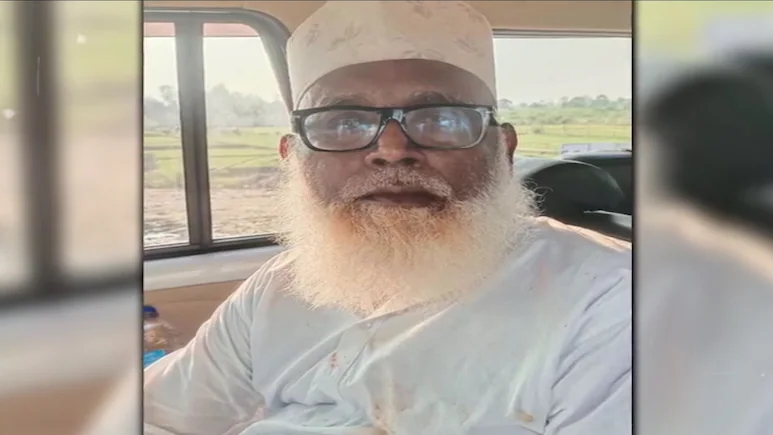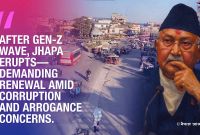Rs 500 Crore Conversion Scandal: How Nepal Became India’s Secret Pipeline for Chhangur Baba

The revelations pouring out of India’s heartland have left the nation stunned: Jalaluddin alias Chhangur Baba, a little-known godman from Balrampur, Uttar Pradesh, is now at the center of one of the biggest religious conversion and money laundering scandals in recent history. According to the Anti-Terror Squad (ATS), nearly ₹500 crore in foreign funding poured into his network over the last three years—₹200 crore officially traced, and an alarming ₹300 crore clandestinely funneled through Nepal’s porous borders using illegal hawala routes.
What makes this scandal particularly explosive is its geopolitical footprint. Investigators have confirmed the funds originated from Muslim-majority countries, including Pakistan, Dubai, Saudi Arabia, and Turkey—countries already under the scanner for sponsoring radical elements in South Asia. In Nepal, agents in districts like Kathmandu, Nawalparasi, Rupandehi, and Banke allegedly operated hundreds of bank accounts, routing cash with 4–5% commission cuts. The money quietly slipped into Indian border states, reaching Balrampur, Shravasti, Bahraich, and even Ayodhya, where authorities suspect it was used to target Hindu girls for religious conversion.
The mechanics were sophisticated: money was fed into Nepal’s Cash Deposit Machines, then smuggled across the border by a network of agents stretching into Bihar’s Madhubani, Sitamarhi, and Kishanganj, who laundered Nepali rupees into Indian currency through local exchangers. By the time it reached Chhangur Baba, it was clean—but the intent was anything but. Authorities are now combing through 40 Indian bank accounts, including those of known associates like Naveen Rohra, who held ₹34.22 crore, and Nasreen, with ₹13.90 crore.
Perhaps the most symbolic blow came not in court, but with bulldozers. In Balrampur, the Uttar Pradesh administration razed Chhangur’s opulent ₹5 crore mansion—built illegally on government land, its marble gates a stark reminder of how money, power, and religious influence intertwine in India’s fragile social fabric. Ten bulldozers flattened the 40-room fortress over three tense days, as locals watched the spectacle unfold.
Meanwhile, investigators are chasing the money trail beyond Indian borders, probing suspected offshore accounts in Sharjah, Dubai, and the UAE. The Enforcement Directorate (ED) has launched a formal money laundering investigation, and the ATS has demanded a decade’s worth of income tax records.
As India reels from the magnitude of this case, a deeper anxiety lingers: how many more Chhangur Babas are quietly rising, bankrolled by shadowy networks, reshaping local communities in ways that only surface when it’s too late? The government’s next challenge may not just be about freezing accounts—but about confronting the societal fractures left in the wake of such covert campaigns.
Nepal Medical College Chhangur Baba



![From Kathmandu to the World: How Excel Students Are Winning Big [Admission Open]](https://nepalaaja.com/img/70194/medium/excel-college-info-eng-nep-2342.jpg)
